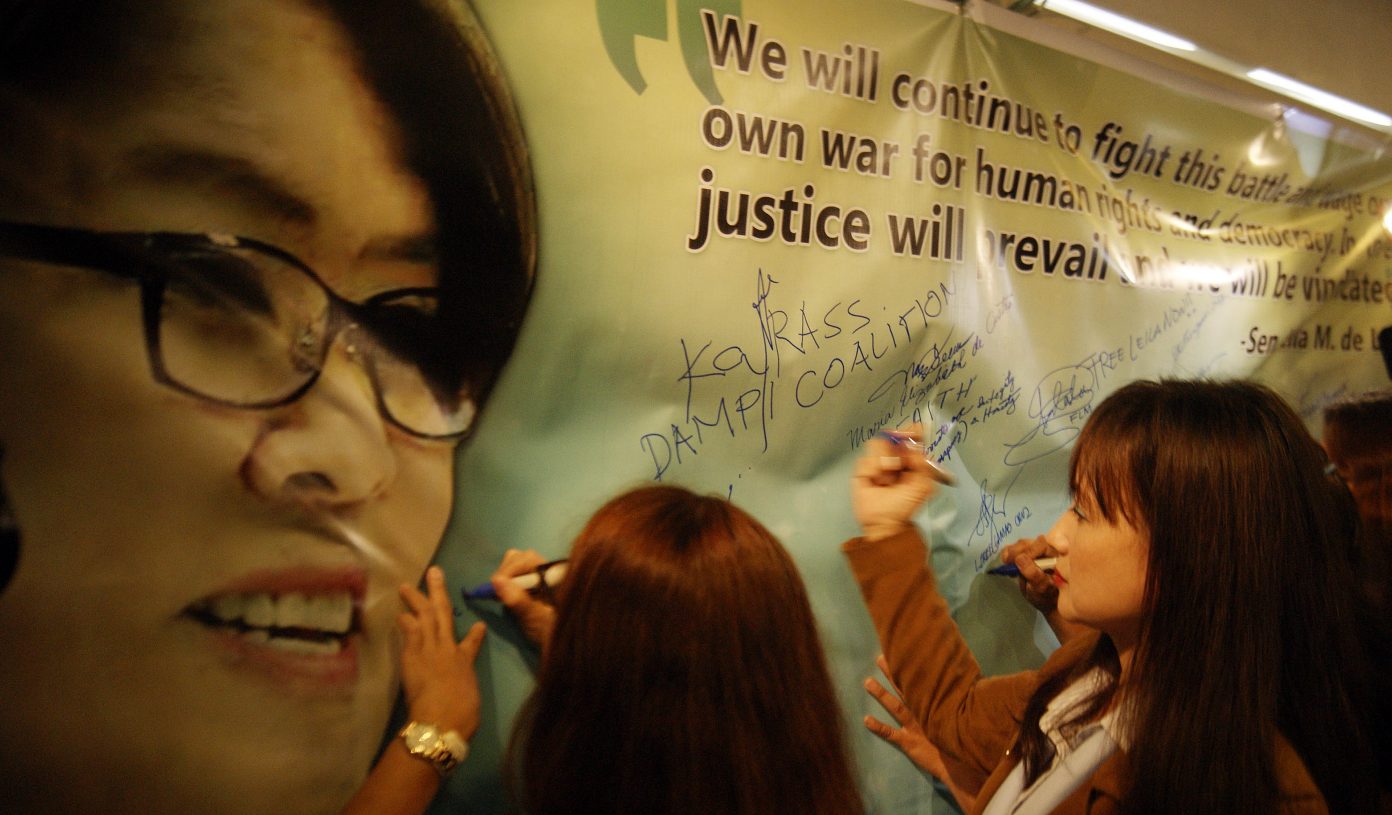The Philippines and other ASEAN member states must immediately halt the use of judicial harassment and politically-motivated charges against critics and political opponents, a phenomenon known as “lawfare.”
This was the call made by the ASEAN Parliamentarians for Human Rights (APHR) during a media briefing on Manila on Friday, January 27.
“We call on Southeast Asian authorities to stop abusing the legal system to stifle dissent and urge ASEAN to reprimand member states that continue to use ‘lawfare’ to attack political opposition,” said Mercy Barends, chairperson of APHR and member of the Indonesian House of Representatives.
She said the Philippine government can take the first step by dropping all charges against former congressman Walden Bello and immediately releasing Senator Leila De Lima.
Bello is facing what the group described as “politically-motivated charges” of cyber-libel brought by a former official of Davao City.
Senator De Lima, meanwhile, was arrested in February 2017 on drug charges shortly after she launched a Senate investigation into the extrajudicial killings committed under the Rodrigo Duterte administration.
She has remained in detention ever since, still waiting for her trial.
“Lawfare is very common in the Philippines, but is happening everywhere in Southeast Asia and beyond,” said Charles Santiago, APHR co-chairperson and former Malaysian Member of Parliament.
He said governments in the region are using “ambiguous laws” to prosecute political opponents, government critics, and activists.
“This weaponizing of the legal system is alarming and incredibly damaging to freedom of expression,” said Santiago, adding that it creates an “atmosphere of fear” that not only silences those who are targeted but also “makes anyone who may want to criticize those in power think twice.”
In Myanmar and Cambodia, laws on treason and terrorism have been weaponized to crush opposition, said an APHR statement.
In July last year, four prominent Myanmar activists were executed based on what appeared as bogus terrorism charges by the military junta.
“Those were the first judicial executions in decades, and provide an extreme example of how the law can be perverted by authoritarian regimes to cement their power,” read the APHR statement.
The group also said that in Cambodia, members of the opposition are sentenced to lengthy jail terms on “fabricated charges” simply for exercising their right to freedom of speech.
In Thailand, defamation laws are among the most often used for “lawfare.” Sections 326–328 of the Thai Criminal Code establish several defamation offenses with sentences of up to two years’ imprisonment and fines of up to 200,000 Thai Baht (approximately US$6,400).
“I think we, as parliamentarians, should do our utmost in our respective countries to repeal, or at least amend, these kinds of laws,” said Rangsiman Rome, member of the Thai Parliament and APHR member.







